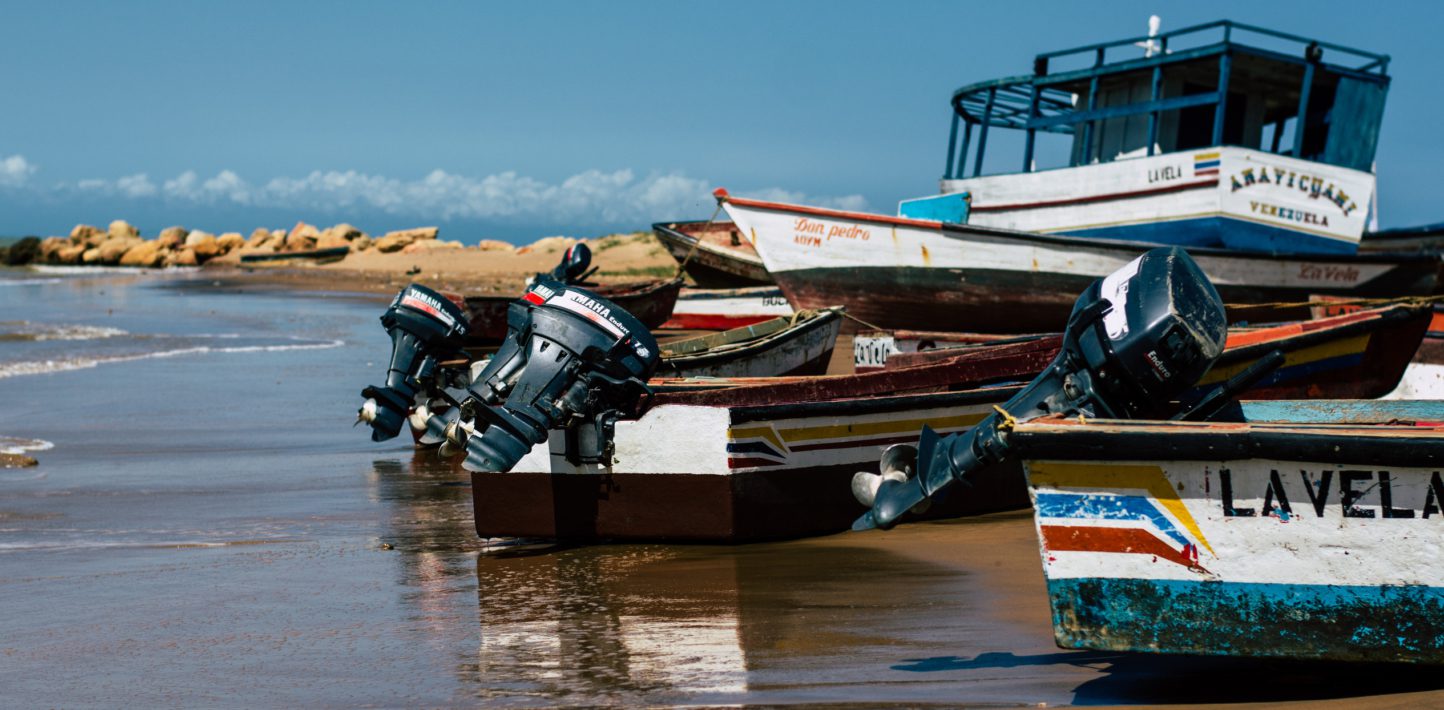As initial information emerges of a new shipwreck on Venezuela’s coast, Louise Tillotson, Caribbean Researcher at Amnesty International, writes about governments’ obligations to provide international protection for refugees.
It’s February 2020 and on the Savannah, in Port of Spain, Trinidad a coconut vendor talks about “the virus” emerging in China. He’s worried that the island’s world-famous carnival is just around the corner and that cases will be imported.
Trinidad and Tobago is one of the most culturally and ethnically diverse countries in the Caribbean and as such, the vendor was worried that the country’s diaspora, coming from as far as China to closer-by Canada, bulges the population of the island during each carnival. Trinidadians, like most Caribbean people, know migration is part of life.
While failing to condemn the massive human rights violations in Venezuela, Trinidad and Tobago’s authorities have prioritized a response focused on 'protecting national security' and 'border protection' rather than finding ways to fulfil its human rights commitments
Just before lockdowns were enforced across many countries in the region, we at Amnesty International visited Trinidad to carry out field research with Venezuelan refugee women. We interviewed dozens of women, many who identified as having been trafficked to the country, many who said they knew the risks they faced but would do anything to feed their family or escape the human rights violations back home. We also sat down with government officials, including the police and Attorney General, NGOs and academics.
Just miles off the coast of Venezuela, Trinidad and Tobago is already home to at least 16,500 Venezuelans (UNHCR had registered almost 20,000 by October 2020) escaping a now well-documented, blistering mix of hunger, lack of medicines, and a policy of repression that’s been in place since at least 2014. A recent 400-page UN Independent Fact-Finding Mission report has concluded there are reasonable grounds to say crimes against humanity have been committed in Venezuela.
In response, many Trinidadian and Tobagonians, faith-based organizations, and NGOs, have mobilized to welcome and host Venezuelans in need of international protection. The government, however, has largely been speaking a different language.
While failing to condemn the massive human rights violations in Venezuela, Trinidad and Tobago’s authorities have prioritized a response focused on “protecting national security” and “border protection” rather than finding ways to fulfil its human rights commitments, made when it acceded to the 1951 Refugee Convention and its 1967 Protocol. It continues to hide behind the excuse that it has no national refugee legislation and argues that those fleeing for their lives are committing “criminal” offences, an assertion that also contradicts international human rights law.
Just weeks ago, Trinidad and Tobago’s authorities sent at least 16 children and an estimated 12 adults back out into the high seas, after they’d arrived in Trinidad and Tobago seeking safety. While the group was later returned to Trinidad, the image of a baby from that group behind prison bars, published in the Trinidad and Tobago Guardian, begs the question: Can a baby really be a “criminal”? The Inter-American Commission on Human Rights has since granted some of the children now returned precautionary measures – a form of protection for imminent harm.
On Sunday, Amnesty International began to receive reports of another shipwreck off the coast of Venezuela, one of several over the past years. While information is still unclear about what exactly happened, initial information suggests that between 14 and 21 children and adults are dead or are missing.
Since our visit in February, we have received consistent reports that Venezuelans have continued to flee. The mass human rights violations and humanitarian crisis in Venezuela don’t end with a pandemic. And while understandably Trinidad and Tobago want to take measures to prevent COVID-19, good practices from other countries show it is entirely possible to keep access to asylum open while also following strict health protocols.
In recent months, Amnesty International, the Caribbean Centre for Human Rights, and more than 20 other organizations have written two open letters to Prime Minister Dr Keith Rowley, asking for his government to recognize the gravity of the human rights violations Venezuelans are fleeing and to find ways to provide protection. Whether that be by opening another “amnesty” – as the government did in 2019 – or passing refugee legislation that would guide immigration officials and judges on how to deal with such cases.
Some days, when we start receiving reports of bodies appearing at sea, bodies of children and adults more than likely fleeing now well-documented, horrific, human rights violations, we stop for a minute to be heart broken
To date, we have had no response to either of our letters.
Those of us who do human rights work document hard and violent material on a daily basis. It is our job to be objective and gather facts. But some days, when we start receiving reports of bodies appearing at sea, bodies of children and adults more than likely fleeing now well-documented, horrific, human rights violations, we stop for a minute to be heart broken.
Whatever the facts of the most recent shipwreck, Venezuelans will continue to take risks, continue to brave the seven-mile stretch of water between Venezuela and Trinidad, continue to subject themselves to labour exploitation and trafficking and other forms of humiliation in countries where they’ve sought protection, because they have no other choice. Anyone who has read the UN’s horrifying independent report will understand this.
It is the responsibility of all governments to implement laws and practices that protect people. Shame on them for failing to do so.


